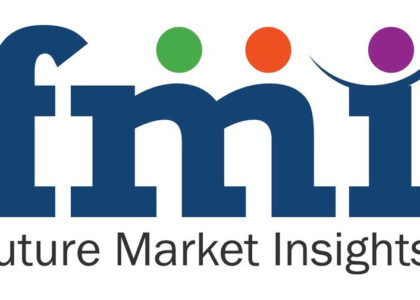Sheet metal is a critical material in modern industrial applications, known for its versatility and widespread use across various sectors. Essentially, sheet metal refers to thin, flat metal pieces that can be easily shaped, cut, or bent into numerous designs and forms. The material can be produced from various metals such as steel, aluminum, copper, and titanium, each offering distinct advantages depending on the application.
From the automotive industry, where it is used to create vehicle body parts, to the construction sector for roofing and facades, sheet metal serves as the backbone of several industries. Additionally, it plays a crucial role in the manufacturing of appliances, aircraft, and heavy machinery. The ability to process sheet metal into different shapes, along with its durability, affordability, and recyclability, makes it one of the most widely utilized materials in the global market.
Sheet Metal Value and Growth Projections
As of 2023, the global sheet metal market is valued at an impressive USD 316 billion. With steady growth anticipated over the next decade, the market is expected to expand at a compound annual growth rate (CAGR) of 4.0% from 2024 to 2034. This trajectory places the projected value of the sheet metal market at USD 467.76 billion by 2033, underscoring its enduring importance and demand across multiple industries.
The rise in urbanization, infrastructural development, and industrialization, particularly in emerging economies, are significant contributors to the growth of the sheet metal market. As sectors such as automotive, aerospace, and construction continue to thrive, the demand for sheet metal is expected to rise correspondingly.
Prominent Drivers of the Sheet Metal Market
- Increasing Demand from the Automotive Industry
The automotive industry is one of the largest consumers of sheet metal, as it is extensively used in the production of vehicle bodies and parts. With the increasing shift toward electric vehicles (EVs), the demand for lightweight yet strong materials like aluminum sheet metal is expected to surge. The emphasis on fuel efficiency and reducing carbon emissions has spurred the use of lightweight materials, further driving sheet metal consumption in the automotive sector. - Rapid Urbanization and Infrastructure Development
The construction industry remains a key driver of the sheet metal market. As urbanization accelerates, particularly in developing countries such as India and China, the demand for building materials is skyrocketing. Sheet metal is widely used in roofing, cladding, and structural applications in construction. The increasing need for residential, commercial, and industrial spaces is anticipated to propel the market forward. - Advancements in Manufacturing Technologies
The introduction of advanced manufacturing technologies, such as 3D printing and automation, has revolutionized the sheet metal industry. These technologies allow for greater precision, faster production times, and reduced material waste, making sheet metal manufacturing more efficient and cost-effective. As manufacturers adopt these innovations, the market is set to benefit from enhanced productivity and sustainability. - Rising Demand for Renewable Energy
As the world shifts towards renewable energy sources, the sheet metal market is gaining traction in this sector. Wind turbines, solar panels, and other renewable energy infrastructures rely heavily on sheet metal components. With government initiatives and global efforts to reduce carbon footprints, the demand for sheet metal in renewable energy projects is expected to grow significantly.
To Gain More Insights about this Research, Visit!
Challenges Faced by the Sheet Metal Market
While the sheet metal market is poised for growth, it faces several challenges that could impede its progress.
- Fluctuating Raw Material Prices
The volatility in the prices of raw materials such as steel, aluminum, and copper directly impacts the cost of producing sheet metal. Price fluctuations can create uncertainty for manufacturers and limit their ability to maintain stable profit margins. The industry’s reliance on metal prices makes it vulnerable to market shifts and supply chain disruptions. - Environmental Concerns
The sheet metal industry, particularly the production and processing of metals like steel, is energy-intensive and contributes to greenhouse gas emissions. As global regulations on carbon emissions become stricter, sheet metal manufacturers face increasing pressure to adopt more sustainable practices. The challenge of reducing environmental impact while maintaining production efficiency is a key concern for the industry moving forward. - Intense Competition
The sheet metal market is highly competitive, with numerous manufacturers vying for market share. As a result, companies are often forced to lower their prices to remain competitive, which can squeeze profit margins. The need to invest in advanced technologies and maintain cost efficiency while staying competitive poses a significant challenge for smaller and mid-sized players in the market.
Sheet Metal Market: Segmentation
The sheet metal market can be segmented on the basis of material type, thickness, and application:
On the basis of material type, the sheet metal market can be segmented as follows:
- Stainless steel
- Aluminum
- Brass
- Tin
- Titanium
- Zinc
- Others
On the basis of thickness, the sheet metal market can be segmented as follows:
- < 1 mm
- 1-6 mm
- > 6mm
On the basis of application, the sheet metal market can be segmented as follows:
- Automotive & Transportation
- Building & Construction
- Industrial Machinery
- Oil & Gas
- Commercial
- Others
About Future Market Insights (FMI)
Future Market Insights, Inc. (ESOMAR certified, recipient of the Stevie Award, and a member of the Greater New York Chamber of Commerce) offers profound insights into the driving factors that are boosting demand in the market. FMI stands as the leading global provider of market intelligence, advisory services, consulting, and events for the Packaging, Food and Beverage, Consumer Technology, Healthcare, Industrial, and Chemicals markets. With a vast team of ~400 analysts worldwide, FMI provides global, regional, and local expertise on diverse domains and industry trends across more than 110 countries.
Contact Us:
Future Market Insights Inc.
Christiana Corporate, 200 Continental Drive,
Suite 401, Newark, Delaware – 19713, USA
T: +1-845-579-5705
For Sales Enquiries: sales@futuremarketinsights.com
Website: https://www.futuremarketinsights.com
LinkedIn| Twitter| Blogs | YouTube


